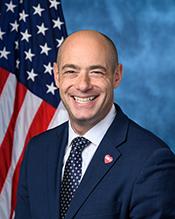S. 1330: Bolstering Research And Innovation Now Act
The Bolstering Research And Innovation Now Act, also known as the BRAIN Act, aims to enhance research and treatment for brain tumors, particularly focusing on glioblastoma, a type of aggressive brain cancer. Here’s an overview of the main provisions outlined in the bill:
Findings and Purposes
The bill recognizes that over 1 million people in the U.S. are living with brain tumors and that the incidence and survival rates for malignant brain tumors have not improved significantly over the past 45 years. The primary purposes of the bill are to:- Strengthen research and the development of treatments for brain tumors.
- Improve awareness, adequacy, and access to specialized health care for brain tumors and other rare cancers.
Transparency in Biospecimen Collections
The bill mandates the establishment of a searchable online database for biospecimen collections related to brain cancer research. This database will provide:- Information on the existence and location of these collections.
- A description and contact information for inquiries.
Glioblastoma Therapeutics Network
The legislation establishes a Glioblastoma Therapeutics Network to fund research collaborations aimed at improving treatments for glioblastoma. The NIH will be authorized to allocate substantial funding for this purpose, estimated at $50 million annually from 2026 to 2030.Immunotherapy Development
The bill emphasizes funding for the development of cellular immunotherapy approaches, including CAR-T therapy, for brain tumors. This initiative focuses on supporting collaborative research to evaluate such treatments through clinical trials.Public Awareness Campaign
A national awareness campaign will be launched to educate the public and healthcare providers about the importance of clinical trials and biomarker testing in treating cancer. The campaign will include:- Distribution of informational materials.
- Public service announcements.
- Engagement initiatives tailored to specific high-risk populations.
Demonstration Projects
The bill authorizes grants for demonstration projects to evaluate outreach and education strategies, focusing on increasing awareness about clinical trials among patients, families, and healthcare professionals.Monitoring Brain Tumor Survivors
The legislation establishes pilot programs aimed at monitoring and caring for brain tumor survivors. These programs will explore various approaches for follow-up care and support, especially for pediatric survivors transitioning to adult care.FDA Guidance for Clinical Trials
Within a year of the bill's enactment, the Department of Health and Human Services will issue guidance aimed at ensuring that brain tumor patients, as well as those with other rare cancers, are not excluded from clinical trials evaluating treatments for unrelated conditions.Funding Authorization
The bill outlines funding appropriations for various initiatives ranging from $5 million to $50 million annually for different aspects of brain tumor research and treatment from fiscal years 2026 to 2030.Relevant Companies
- NVDA - NVIDIA Corporation: The company is heavily involved in AI and machine learning technologies that may be utilized in the development of treatment and monitoring solutions for cancer patients, including brain tumors.
- CELG - Celgene Corporation (now part of Bristol Myers Squibb): As a biopharmaceutical company, Celgene is involved in developing therapies that may relate to cancer treatments, including novel cancer immunotherapies.
- AMGN - Amgen Inc.: The company develops innovative therapies, including those for cancer treatment, which may be influenced by advancements in brain tumor research highlighted in the bill.
This is an AI-generated summary of the bill text. There may be mistakes.
Show More
Sponsors
4 bill sponsors
Actions
2 actions
| Date | Action |
|---|---|
| Apr. 08, 2025 | Introduced in Senate |
| Apr. 08, 2025 | Read twice and referred to the Committee on Health, Education, Labor, and Pensions. |
Corporate Lobbying
0 companies lobbying
None found.
* Note that there can be significant delays in lobbying disclosures, and our data may be incomplete.
Potentially Relevant Congressional Stock Trades
Estimated excess return of the underlying stock since the transaction






































